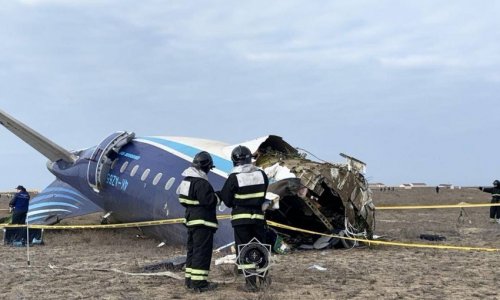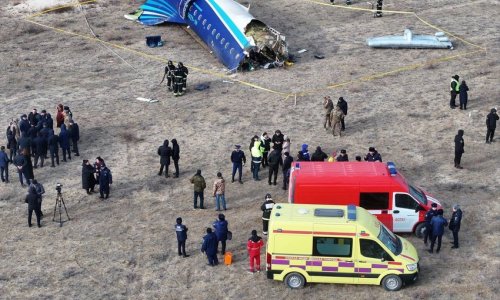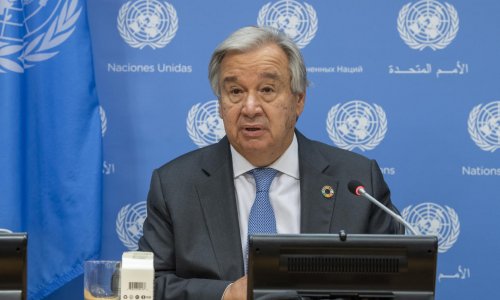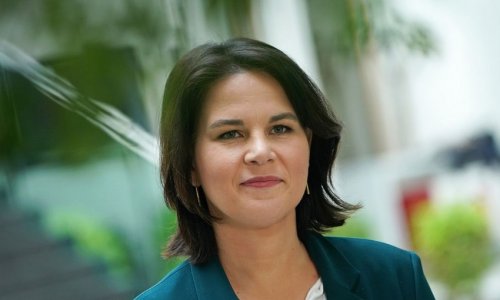Follow us !
Saudi Arabia declares atheists terrorists under new laws
World
19:45 | 02.04.2014
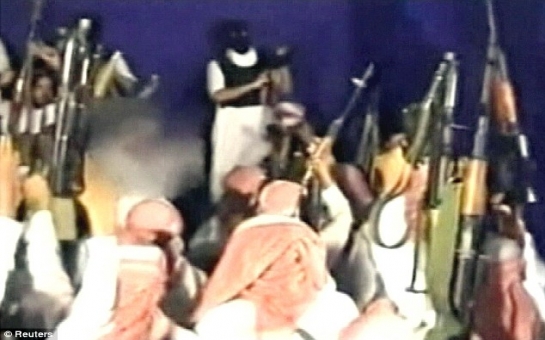
Saudi Arabia declares atheists terrorists under new laws
Saudi Arabia has officially identified atheists as terrorists in sweeping new laws that threaten up to 20 years in prison for almost any criticism of the government or Islam.The regulations place secular citizens who commit thought crimes in the same category as violent terrorist groups such as Al-Qaeda's Yemen branch and Saudi Hezbollah.Under the new decree by King Abdullah, Saudi Arabia will jail for up to 20 years anyone who fights in conflicts abroad - an apparent move to deter Saudis from joining rebels in Syria.But the law also applies to any Saudi citizen or a foreigner residing in the kingdom that 'calls for atheist thought in any form or calls into question the fundamentals of the Islamic religion on which this country is based.'The laws have been denounced by human rights groups for making no distinction between religious expression and violent extremism.'Saudi authorities have never tolerated criticism of their policies, but these recent laws and regulations turn almost any critical expression or independent association into crimes of terrorism,' said Joe Stork, deputy Middle East and North Africa director at Human Rights Watch.The counter-terrorism measure have also been mocked by Al Qaeda's Yemen branch which said they would not deter the Islamist group's fighters and that they proved the kingdom was in the pay of the United States.In an online statement, Al Qaeda in the Arabian Peninsula (AQAP) also said Riyadh's designation of the Muslim Brotherhood - a group whose political wings have contested elections in several countries - as a terrorist organisation proved that secular authorities would never tolerate Islamist groups.AQAP, seen as one of the most dangerous Al Qaeda branches after it plotted attacks on international airliners, is thought to have several hundred Saudi militants fighting alongside Yemeni counterparts against the government in Sanaa.On Feb 3, Saudi Arabia announced tougher punishments for Saudis seeking to join Islamist militant groups abroad and on March 7 the interior ministry designated a number of groups, including the Brotherhood, as terrorist organisations.In the group's first public response to the measures, senior AQAP official Ibrahim al-Rubaysh said of the Saudi authorities in an audio tape posted online: 'Their employers are the White House.' He added that Riyadh appeared to consider the U.S. authorities as 'gods.'Addressing pro-government Muslim preachers in Saudi Arabia, Rubaysh said: 'You are more American than the Americans themselves.'Under the new measures, Saudi Arabia will jail for up to 20 years any citizen who fights in conflicts abroad - an apparent move to deter Saudis from joining rebels in Syria and then posing a security risk once they return home.Saudi Arabia's Islamic religious authorities have spoken out against Saudi fighters going to Syria, but the Interior Ministry estimates that around 1,200 Saudis have gone nonetheless.Riyadh fears returning fighters will target the ruling Al Saud royal family - as happened after the wars in Afghanistan and Iraq.An appeal contained in the counter-terrorism measures for fighters to turn themselves in had not been answered, Rubaysh said, adding that this showed 'there is no weight on the hearts of the mujahideen (holy warriors)'.Saudi authorities also fear the Muslim Brotherhood, whose Sunni Islamist doctrines challenge the Saudi principle of dynastic rule, has tried to build support inside the kingdom since the Arab Spring revolutions.In Egypt, the Brotherhood, which won every election after the toppling of veteran leader Hosni Mubarak in 2011, has been driven underground since the army deposed President Mohamed Mursi, a member of the group which also suffered repression in the Mubarak era.Rubaysh said the listing of the Brotherhood as a terrorist group sent 'a message for all groups who are softening their processes and abandoning some of their principles' that they would never be accepted by the 'heads of disbelief'.'Heads of disbelief' is a phrase used by al Qaeda to indicate secular or pro-Western authorities.'It is required to stand firm unto death if we desire the satisfaction of Allah,' Rubaysh said.(dailymail.co.uk)ANN.Az



